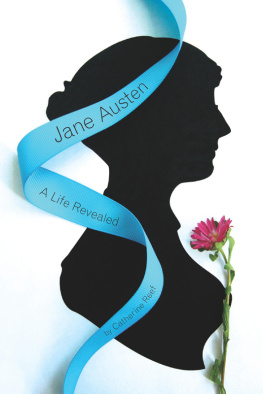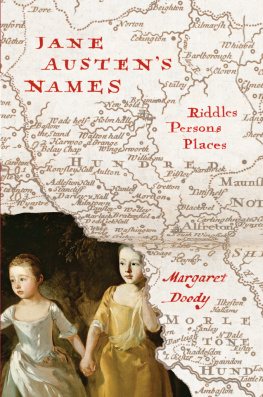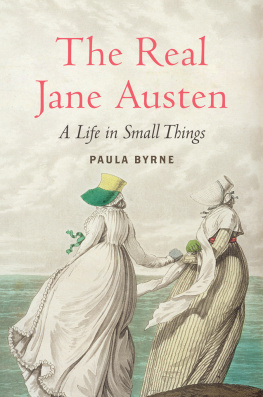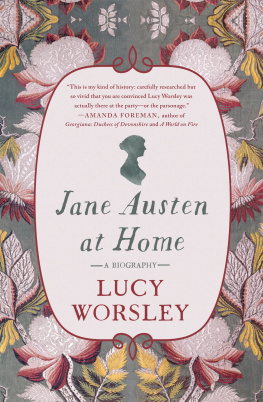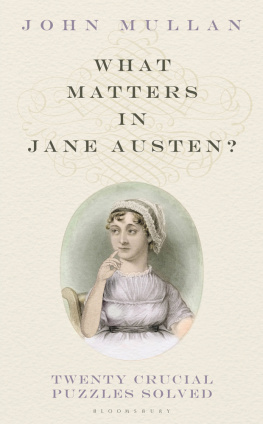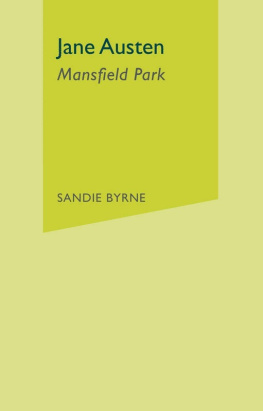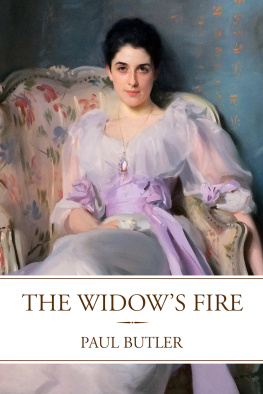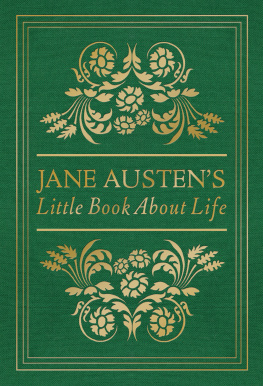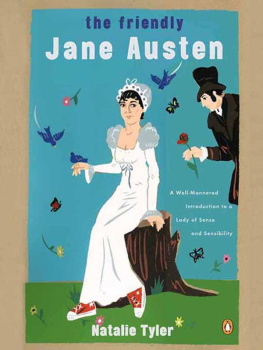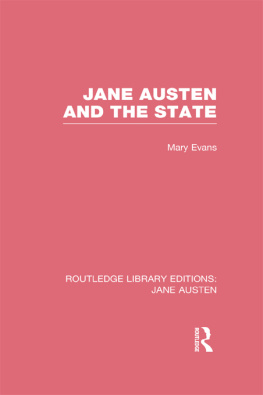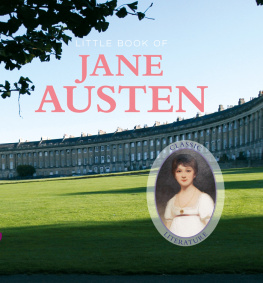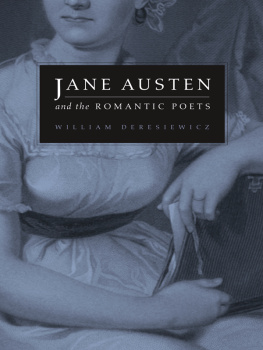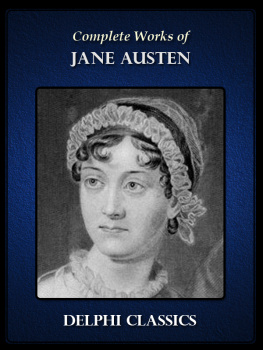Clarion Books
215 Park Avenue South
New York, New York 10003
Copyright 2011 by Catherine Reef
All rights reserved. For information about permission to reproduce selections from this book, write to Permissions, Houghton Mifflin Harcourt Publishing Company, 215 Park Avenue South, New York, New York 10003.
Clarion Books is an imprint of Houghton Mifflin Harcourt Publishing Company.
www.hmhbooks.com
Library of Congress Cataloging-in-Publication Data is available.
LCCN 2011008146
ISBN 978-0-547-37021-7
eISBN 978-0-547-57414-1
v2.0313
For Jennifer Greene
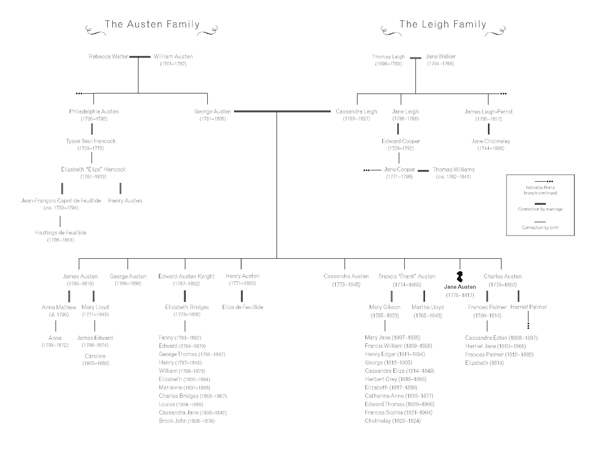
I cannot anyhow continue to find people agreable.
Jane Austen, May 13, 1801
one
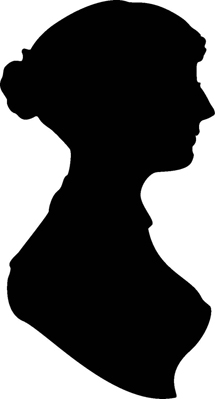
GENTLE AUNT JANE?
Now be sincere; did you admire me for my impertinence?
P RIDE AND P REJUDICE
C HARLOTTE HEYWOOD , twenty-two, has grown up healthy, useful, and obliging. Away from home for the first time, she waits in a sitting room at Sanditon House to be greeted by her hostess, the twice-widowed Lady Denham. It is early in the nineteenth century, and as Charlotte waits, she ponders. Why does a large, full-length portrait of Lady Denhams second husband hang above the mantelpiece? In contrast, the great ladys first husband, Mr. Hollisthe man who built Sanditon Houseis portrayed in a miniature that would fit in Charlottes palm. And what is being said just then by Lady Denhams nephew, Sir Edward, to the penniless Clara Brereton? Charlotte glimpsed the secret lovers outdoors, holding a private conversation, as she traveled up the broad, handsome approach to Sanditon House...
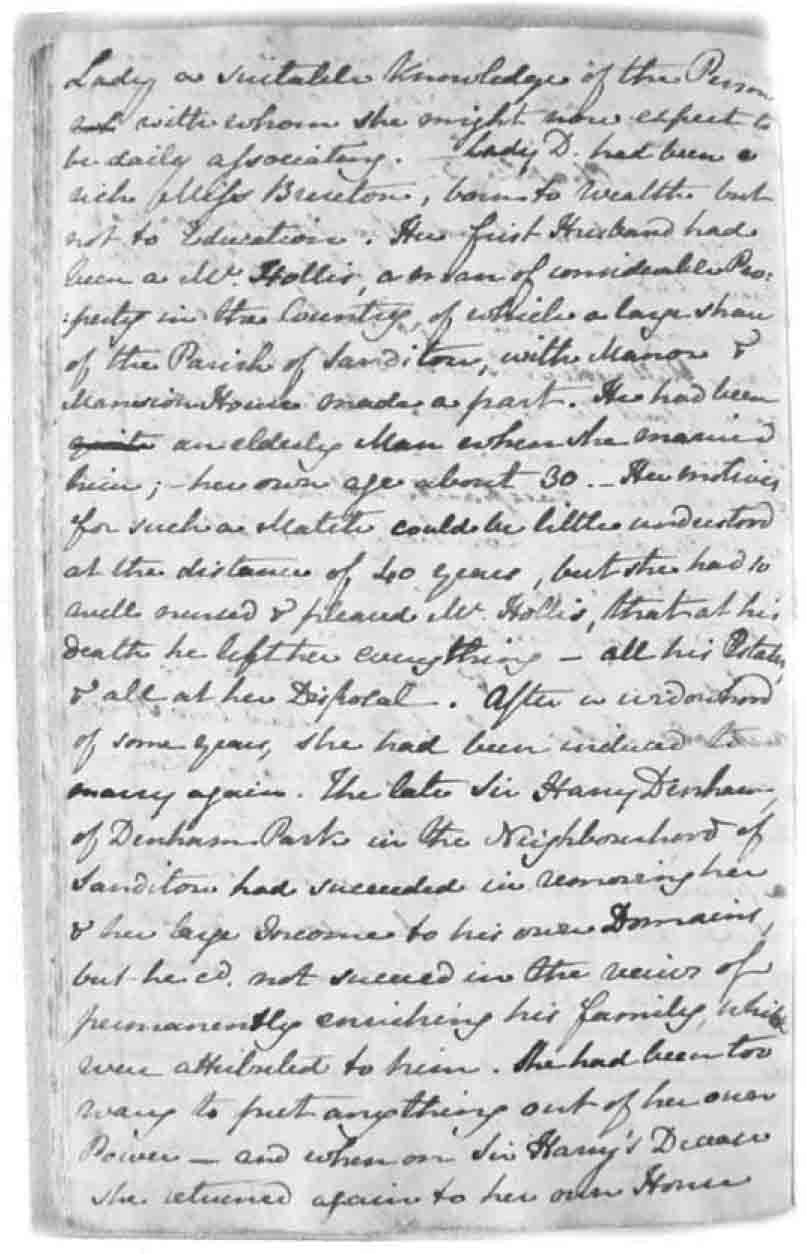
Most of Jane Austens handwritten manuscripts have been lost, but her unfinished last novel is one that survives. Austen called this story
The Brothers, but after her death, her family changed its title to
Sanditon.Then Jane Austens characters fell under a spell. When Austen put down her pen on March 18, 1817, too ill to add another word to her story, she made time stand still for Charlotte and the others. For two centuries, not a clock has ticked in Lady Denhams mansion or in the surrounding town; not a speck of dust has fallen there. Charlotte Heywood waits and wonders, her eyes focused on the tiny portrait of Mr. Hollis, never blinking. Lady Denham stands frozen in place, one foot raised, poised to enter the sitting room. Clara and her suitor sit motionless, side by side forevermore.
How Austen would have finished her last novel, Sanditon, remains a mystery, one of several that confound the fans of this much-loved author. Millions of people throughout the world read and enjoy Austens books; she and her novels are the subjects of countless films and adaptations; but very little is known about the woman herself. What did she look like? Did she have fine naturally curling hair, neither light nor dark, as one of her many nieces recalled, or long, long black hair down to her knees, as another niece remembered? A cousin once dubbed Austen and her sister, Cassandra, two of the prettiest girls in England, but a niece wrote that Austen fell short of being a decidedly handsome woman. Jane Austen died before photography was invented. The only picture of her that survives is a watercolor by Cassandra Austen, but people who knew the author claimed it was a poor likeness.
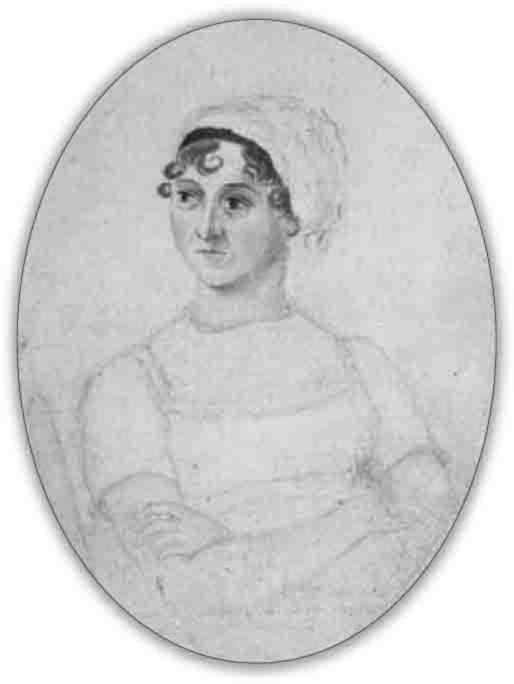
Cassandra Austen painted the only authenticated portrait of her sister, Jane. People who knew Jane Austen said that she bore little resemblance to this wary, unsmiling woman.
No one knows Jane Austens views on religion or politics, or even what she did or thought for weeks or months at a time. Old diaries and letters can reveal much about famous people of the past, but Austen left no diaries. After she died, her relatives destroyed many of her letters for reasons that can only be guessed. Were they too personal? Might they have hurt peoples feelings, or revealed a side of Jane Austen that her family hoped to hide?
Because her novels were published anonymously, when she died at age forty-one, readers were only just starting to learn that this country clergymans daughterthis retiring spinsterhad authored Sense and Sensibility, Pride and Prejudice, and other popular novels that probe the human heart. Her family described Jane Austen to the world as they wanted her remembered. Her sweetness of temper never failed. She was ever considerate, wrote her nephew James Edward Austen-Leigh. Faultless herself, as nearly as human nature can be, she always sought, in the faults of others, something to excuse, to forgive or forget, wrote her brother Henry. Added one of her nieces, I do not suppose she ever in her life said a sharp thing.
Not ever? It is hard to believe that such a sweet, forgiving creature would write lines such as these:
I do not want People to be very agreable, as it saves me the trouble of liking them a great deal.
For what do we live, but to make sport for our neighbours, and laugh at them in our turn?
Mrs. Allen was one of that numerous class of females, whose society can raise no other emotion than surprise at there being any men in the world who could like them well enough to marry them.
Jane Austens wit and cutting remarks on human nature make her novels fun to read.
Austen lived and wrote as the 1700s came to a close and a new century began. Novels were still a fairly new form of literature, made popular in England by writers like Daniel Defoe and Henry Fielding. In 1719, Defoe wrote about a shipwrecked traveler surviving on an island in Robinson Crusoe. In 1749, Fielding entertained readers with the bawdy, comic adventures of a young man forced to make his way in the world in Tom Jones. In the early 1800s, Sir Walter Scott began drawing on history to write exciting novels like Ivanhoe and Rob Roy, books filled with romance, jousting, and the storming of castles.
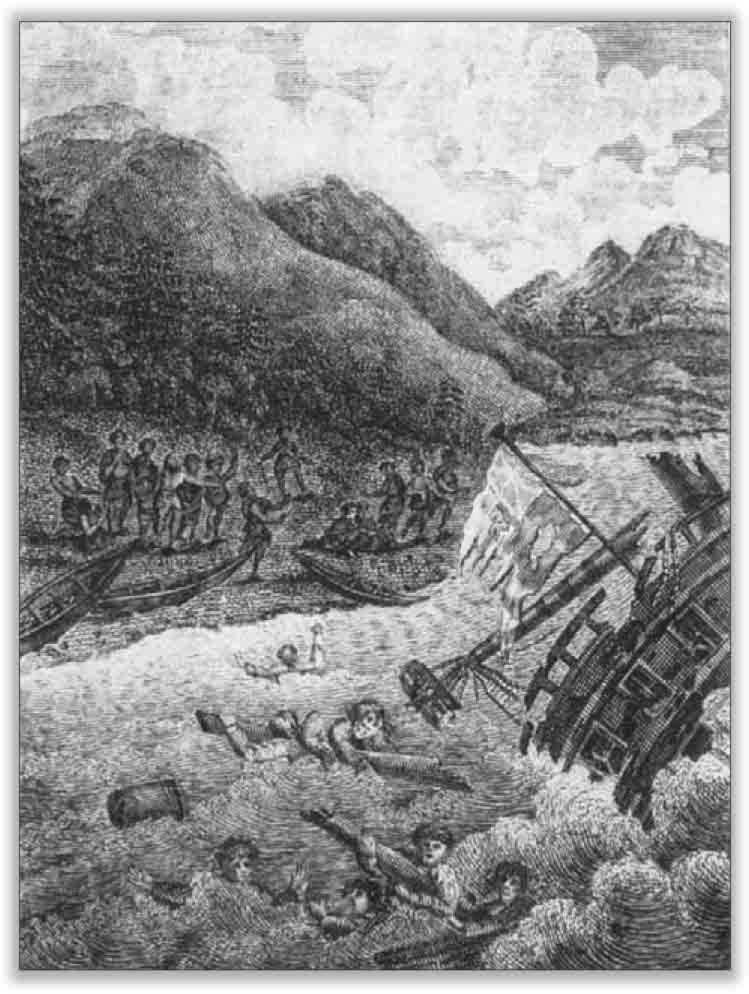
A ship wrecks off the coast of Madagascar in Daniel Defoes book
The Adventures of Robert Drury (1807). Readers in Jane Austens time savored tales of danger in faraway places.
These authors packed their novels with action. They transported their characters to exotic locales and had them escape mortal danger with barely moments to spare. They painted on big canvases, but Austen sketched on a little bit (two inches wide) of Ivory, she said, working with so fine a Brush. She wrote about the kind of people she knew well, ladies and gentlemen of the English countryside, and she confined her plots to family life, friendship, courtship, and marriage. She offered readers little touches of human truth, little glimpses of steady vision, little masterstrokes of imagination, said the American-born novelist Henry James.
Jane Austen began writing stories as a child growing up in her fathers parsonage. She honed and polished her work, and in 1811, when she was thirty-five years old, her first published novel appeared.
Next page
